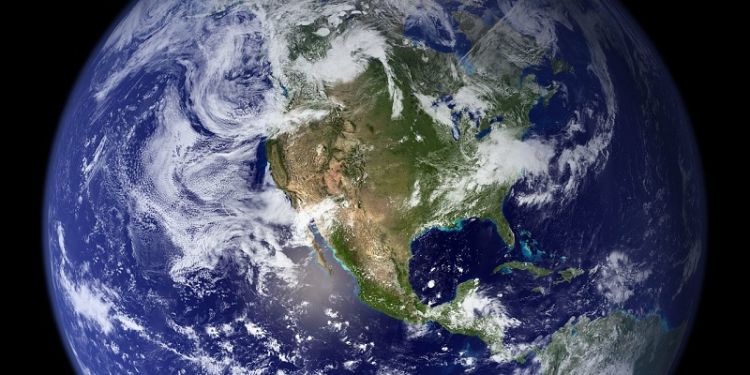New study discovers how the Earth tries to keep itself cooler

New research is uncovering the key role that the emission of chlorine, bromine and iodine gases from the oceans into the atmosphere is playing in reducing global warming.
Known as short-lived halogens, the gases exist for about six months and interact with methane, ozone and aerosols with the overall effect of reducing radiative energy levels in the atmosphere – and that helps to keep global temperatures cooler.
John Plane, Professor of Atmospheric Chemistry in the School of Chemistry at Leeds and one of the scientists contributing to the study, said: “When people talk about the significance of gas exchanges between the oceans and the atmosphere, they tend to focus quite rightly on those gases responsible for global warming.
“But our research is revealing another process which is having an opposite effect, where the short-lived halogens are mediating the effect of the greenhouse gases. They are helping to keep the world cooler.
“This is an important role – and one that we need to reflect more in our assessments of global climate change.”
The researchers used a state-of-the-art model of the earth system to calculate the effect of the short-lived halogens on the global energy balance, the difference between the energy coming in from the sun and that which leaves the earth. The energy balance drives the global climate system.
Short-lived halogens are emitted from the oceans, polar ice and the biosphere and for the past two decades, measurements made around the world have demonstrated their ubiquitous presence in the atmosphere.
Analysis using the earth system model suggests that gases have had an increased cooling effect since 1750, when human activity, through rapid industrialisation, began to increase greenhouse gas emissions into the atmosphere.
Professor Alfonso Saiz-Lopez, the lead author of the study based at the Institute of Physical Chemistry Blas Cabrera at the Consejo Superior de Investigaciones Científicas in Spain, worked in the School of Chemistry at Leeds between 2006 and 2007.
He said: “Our results show that ocean-emitted short-lived halogens exert an indirect cooling effect on the climate system, and that this natural cooling effect has been amplified since the beginning of the industrial era driven by anthropogenic activity.”
The scientists say models used to make assessments of the global climate systems, such as those used by the Intergovernmental Panel on Climate Change, do not take account of the role of the short-lived halogens.
Further information
- ‘Natural short-lived halogens exert an indirect cooling effect on climate’ was published in Nature on 28 June 2023 DOI: 10.1038/S41586-023-06119-Z




